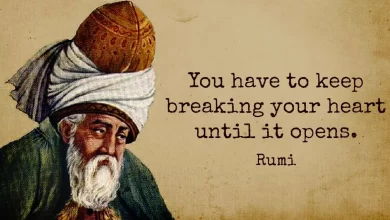
12 Ways to Stop Worrying About What Everyone Thinks of You
“WHAT’S WRONG WITH wanting others to like you?”
We frequently get emails asking us this question. Seeking approval from others is perfectly fine up until the
point where you are compromising your health and happiness in the process. It becomes a serious problem if
you feel as though widespread positive approval from others is the very oxygen you need to breathe. There was
a time in Marc’s life when he felt exactly this way.
He literally felt short of breath—almost as if he’d die—if his peers didn’t approve of him. This is a condition
that developed when he was very young, after kids in grade school teased him for being a nerd. He did
everything he could to win their approval. And although he grew out of that awkward stage pretty early in his
teenage years, the damage was done—he was left feeling insecure. He was conditioned to seek and beg for
outside approval at all times.
The big problem was that, as a twentysomething college graduate entering the workforce, Marc felt that
anything he did or even thought had validity only if it was the “right thing” to say and think. And by “right
thing,” he really meant “what other people thought was right.” Marc was terrified to step outside the box of
what was acceptable—which was especially harmful to his creativity as he tried to nurture his passion for
writing and blogging.
Once Marc realized what he was doing, he read several books, spoke with a coach, and focused diligently on
healing this broken part of himself.
It’s an important lesson to learn that tying your self-worth to everyone else’s opinions gives you a flawed
sense of reality. But before we look at how to fix this, we first need to understand why we do this.
From wanting others to think we’re attractive to checking the number of likes and comments on our
Facebook and Instagram posts, most of us care about what others think. In fact, a big part of this is an innate
desire: It has been proved time and time again that babies’ emotions are often drawn directly from the
behaviors of those around them.
As we grow up, we learn to separate our thoughts and emotions from everyone else’s, but many of us
continue to seek—and in many cases beg for—positive social validation from others. This can cause serious
trouble when it comes to self-esteem and happiness. In a recent survey we did with three thousand of our
course members and coaching clients, 67 percent of them admitted that their self-worth is strongly tied to what
other people think of them.
Over a century ago, the social psychologist Charles Cooley identified the phenomenon of the “looking-glass
self,” which is when we believe “I am not what I think I am, and I am not what you think I am—I am what I
think that you think I am.” This kind of external validation has insecurity at its core, and relying on it for even a
short time chips away at our sense of self-worth and self-confidence.
The biggest problem is, we tend to forget that people judge us based on a pool of influences in their own
lives that have absolutely nothing to do with us, including their own past experiences, biases, and looking-glass
selves. Basing your self-worth on what others think puts you in a perpetual state of vulnerability—you are
literally at the mercy of their unreliable perspectives. If they see you in the right light, and respond to you in a
positive, affirming manner, then you feel good about yourself. And if not, you feel like you did something wrong.
Bottom line: When you’re doing everything for other people, and basing your happiness and self-worth on
their opinions, you’ve lost the core of who you are. Constant approval-seeking forces you to miss out on the
beauty of simply being yourself, with your own unique ideas and desires. If you are led through life only doing
and being what you’ve come to believe is expected of you, then, in a way, you cease to live. The good news is
we have the capacity to watch our thoughts and expectations, identify what ones serve us, and then change the
ones that do not. And once you do so, your relationships will have an increased potential to be far deeper and
more authentic.
So how can you stop fearing what everyone thinks of you? How can you settle in to the core of who you are?
Let’s take a look:
First, we must understand that the vast majority of our fears and anxieties amount to one thing: loss.
We fear
Losing our youth
Losing our social status
Losing our money
Losing control
Losing our comfort
Losing our life
We also fear, perhaps more than anything else, being rejected by others. This kind of fear is widespread and
debilitating if left unaddressed. Why is this fear so deeply entrenched in us? In ancient tribal times, being
rejected from the safety of the community could have meant death. So it’s no wonder, really, that we want to
be accepted by others.
Fear is an instinctual human emotion designed to keep us aware and safe—like the headlights on a car
clearly illuminating the twists and turns on the road ahead. But too much fear, like high beams blinding us on a
dark, foggy road, can cause the loss of the very thing we feared losing in the first place.
This is especially true when it comes to the fear of rejection. Here’s another example from Marc’s life:
When he was a teenager, Marc was always the outcast trying desperately to fit in with his peers. He
bounced around to three different schools, and various social circles in each school, within a four-year span, and
he faced rejection after rejection. Marc distinctly remembers shooting hoops on the basketball court by himself
on numerous occasions, always the new kid, always longing for acceptance. For the longest time, Marc thought
these childhood-outcast experiences were the root cause of his obsessive, people-pleasing ways in adulthood.
Do you look for acceptance and reassurance from others too?
If so, you now know you’re not alone. And what we have learned over the years is this: Constantly seeking
acceptance and reassurance from other people is a dead-end journey. These things can be found only within
you, not from others. Because any look, word, or reaction from someone else can be warped and
misinterpreted.
So in order to stop worrying so much about what others think, it’s time to inject some fresh objectivity into
your life, and develop a value system that doesn’t depend on others every step of the way. Here are twelve
things you can start doing today:
1. Realize that fear itself is the real problem.
Franklin D. Roosevelt so profoundly said, “The only thing we have to fear is fear itself.” Nothing could be closer
to the truth. This is especially true as it relates to self-fulfilling prophecies.
A self-fulfilling prophecy is a false belief about a situation that motivates the person with the belief to take
actions that cause the belief to come true. This kind of thinking often kills opportunities and tears relationships
apart. For instance, you might wrongly believe that a group of people will reject you, so you become defensive
and anxious, and perhaps even hostile with them. Eventually, your behavior brings about the feared rejection,
which wasn’t there to begin with. And then you, “the prophet,” feel that you were right from the very beginning:
“I knew they didn’t like me!”
Do you see how this works? Look carefully at your own tendencies. How do your fears and beliefs about
possible rejection influence your behavior toward others? Take a stand. Instead of letting fear show you what
might be wrong in your relationships, start looking for signs of what might be right.
2. Let go of your “end of the world” thinking.
All variations of fear, including the fear of rejection, thrive on “end of the world” thinking. In other words, our
emotions convince us that an undesirable outcome results in annihilation.
What if they don’t like me?
What if he rejects me?
What if I don’t fit in, and I’m left sitting alone at the party?
None of these things result in the end of the world, but if we convince ourselves that they do, we will
irrationally fear these outcomes and give our fears control over us. The truth is, we human beings are inefficient
at accurately predicting how future misfortune will make us feel. In fact, most of the time we avoid consciously
thinking about it altogether, which only perpetuates our subconscious fears.
So ask yourself, “If disaster should strike, and my fear of being rejected comes true, what are three
constructive ways I could cope and move forward with my life?” Sit down and tell yourself a story (write it down
too if it helps) about how you will feel after rejection, how you will allow yourself to be upset for a short while,
and then how you will begin the process of growing from the experience and moving on. Just doing this exercise
will help you feel less fear around the possibility of rejection.
What other people think of you really doesn’t matter that much.
3. Question what “rejection” really means.
If a person discovers a 200-karat white diamond in the earth but, due to ignorance, believes it to be worthless,
and thus tosses it aside, does this tell us more about the diamond or the person? Along the same lines, when
one person rejects another, it reveals a lot more about the rejecter than the rejected . All you are really seeing
is the often shortsighted opinion of one person. Consider the following:
If J. K. Rowling stopped writing after being rejected by multiple publishers for years, there would be no Harry
Potter. If Howard Schultz gave up after being turned down by banks two hundred times, there would be no
Starbucks. If Walt Disney quit too soon after his theme park concept was trashed by three hundred investors,
there would be no Disney World.
One thing is for sure: If you give too much power to the opinions of others, you will become their prisoner.
So never let someone’s opinion alter your reality. Never sacrifice who you are, or who you aspire to be, just
because someone else has a problem with it. Love who you are inside and out, and keep pushing forward. No
one has the power to make you feel small unless you give them that power. And when someone rejects you,
don’t assume it’s because you’re unworthy or unlovable. Because in many ways, all they’ve really done is give
you feedback about their own shortsightedness.
4. Be fully present and aware of how you do want to feel.
Ever noticed how people who are struggling with emotional challenges tend to tell you how they don’t want to
feel? Fair enough, but at some point we all need to focus on how we do want to feel.
When you’re in a social situation that’s making you anxious, forget what you don’t want to feel for a
moment. Work out how you do want to feel right now in the present moment. Train yourself to live right here,
right now, without regretting how others once made you feel or fearing the possibility of future judgment.
This is your choice. You can change the way you think.
If you were administering lifesaving mouth-to-mouth resuscitation in public, you’d be 100 percent focused
and present. You wouldn’t be thinking about what bystanders thought of your hair, your body type, or the brand
of jeans you were wearing. All these inconsequential details would vanish from your consciousness. The
intensity of the situation would banish from your mind any care about what others might be thinking of you.
This illustrates, quite simply, that thinking about what others are thinking about you is your choice .
5. Let go of your need to be right.
The reason your fear of rejection sometimes gets the best of you is because a part of you believes you’re
always right. If you think someone doesn’t like you, then surely they don’t. Right? Wrong !
People who never question their emotions, especially when they’re feeling sad or anxious, make life much
more difficult than it has to be. It’s time to let go a little. Being more confident in life partly means being okay
with not knowing what’s going to happen, so you can relax and allow things to play out naturally. Relaxing with
not knowing is the key to confidence in relationships and peace in life.
So here’s a new mantra for you—say it, and then say it again: “This is my life, my choices, my mistakes, and
my lessons. I have nothing to prove. And as long as I’m not hurting people, I need not worry what they think of
me.”
6. Embrace and enjoy your individuality.
Constantly seeking approval means we’re perpetually worried that others are forming negative judgments of us.
This steals the fun, ingenuity, and spontaneity from our lives. Flip the switch on this habit.
It takes a lot of courage to stand alone, but it’s worth it. Being unapologetically you is worth it! Your real
friends in life will reveal themselves slowly—they’re the ones who truly know you and love you just the same.
Bottom line: Don’t change so that people will like you; be yourself and the right people will love the real
you.
7. Remind yourself that most people are not thinking about you anyway.
Ethel Barrett once said, “We would worry far less about what others think of us if we realized how seldom they
do.” Nothing could be closer to the truth.
Forget what everyone else thinks of you today; chances are, they aren’t thinking about you anyway. If you
feel like they always are, understand that this perception of them watching you and critiquing your every move
is a complete figment of your imagination. It’s your own inner fears and insecurities that are creating this
illusion.
It’s you judging yourself that’s the real problem.
8. Acknowledge that external validation is only getting in your way.
Spend time clearly and consciously articulating to yourself how your thoughts about what others are
(potentially) thinking play out in your life. Think of situations where these thoughts get in your way, and identify
the triggers and the regrettable responses they cause in your life. Then identify a new behavior that creates a
more beneficial response.
Tell yourself, “Instead of responding in the same old way based on what I think others are thinking, I will
respond in this new way based on my new way of thinking about myself.” Every time you interrupt your
automatic response and respond differently, you are rewiring your brain to think more effectively.
The ultimate goal is to never let someone’s opinion become your reality. To never sacrifice who you are, or
who you aspire to be, because someone else has a problem with it. And to realize once and for all that no one
else has the power to make you feel small unless you give them that power.
9. Get comfortable with not knowing what other people think.
When we first started writing our blog, we’d agonize over whether people would think what we wrote was good
enough. We desperately hoped they’d like it, and oftentimes we’d catch ourselves imagining they didn’t. Then
one day we realized how much energy we were wasting worrying about it. So we’ve gradually learned to relax
with simply not knowing.
Some problems in life, such as not knowing what others think of you, are not really meant to be resolved. As
we’ve mentioned, how people perceive you may have more to do with them than with you anyway. They may
even like or dislike you simply because you’ve triggered an association in their minds by reminding them of
someone they liked or disliked from their past, which has absolutely nothing to do with you.
10. Refocus your attention on what does matter.
People will think what they want to think. You can’t control them. No matter how carefully you choose your
words and mannerisms, there’s always a good chance they’ll be misinterpreted and twisted upside down by
someone. Does this really matter in the grand scheme of things? No, it doesn’t.
What does matter is how you see yourself.
So when you’re making big decisions, make a habit of staying 100 percent true to your values and
convictions. Never be ashamed of doing what feels right.
To help you implement this positive habit, start by listing out five to ten things that are important to you
when it comes to building your character and living your life honorably. For example:
Honesty
Reliability
Self-respect
Self-discipline
Compassion
Progression
Positivity
Having a list like this to reference will give you an opportunity to consciously invoke your handpicked
traits/behaviors in place of doing something random simply for the purpose of external validation. While it may
sound overly simplistic, most people never take the time to actually decide what is important to them when it
comes to their self-image—they let others decide for them.
11. Accept that someone else’s opinion is not your problem.
How many times have you looked at a person and initially misjudged their brilliance? Appearances are
deceptive. How you seem to someone and how you actually are, are rarely congruent. Even if they get the basic
gist of who you are, they’re still missing a big piece of the puzzle. What someone thinks of you will rarely
contain the whole truth, which is fine.
If someone forms an opinion of you based on superficialities, then it’s up to them, not you, to reform those
opinions based on a more objective and rational viewpoint. Leave it to them to worry about—that is, if they
even have an opinion at all.
Bottom line: Other people’s opinions of you are their problem, not yours. The less you worry about what
they think of you, the less complicated your life becomes.
12. Speak and live your truth.
Speak your truth even if your voice shakes. Be cordial and reasonable, of course, but don’t tread carefully on
every word you say. Push your concerns of what others might think aside. Let the consequences of doing so
unravel naturally. What you’ll find is that most of the time no one will be offended or irritated at all. And if they
do get upset, it’s likely only because you’ve started behaving in a way that challenges their limited perspective.
Think about it. Why be fake?
In the end, the truth usually comes out one way or the other, and when that happens, you’re standing alone
if you’ve been holding yourself back. So live your whole truth starting now. If someone gives you a hard time
and says, “You’ve changed,” it’s not a bad thing. It just means you stopped living your life their way. Don’t
apologize for it. Instead, be open and sincere, explain how you feel, and keep doing what you know in your
heart is right.
Afterthoughts
You don’t need a standing ovation or a bestseller or a promotion or a million bucks. You have nothing to prove.
You are enough right now. Go ahead and meditate on that for a minute . . .
You are enough right now.
Care less about who you are to others and more about who you are to yourself. You will have fewer
heartaches and disappointments the minute you stop seeking from others the validation only you can give
yourself.
A life spent ceaselessly trying to please people, who perhaps are incapable of even being pleased, or trying
too hard to always be seen as doing “the right thing,” is a sure road to a regretful existence.
Do more than just exist. We all exist. The question is: Do you live?







